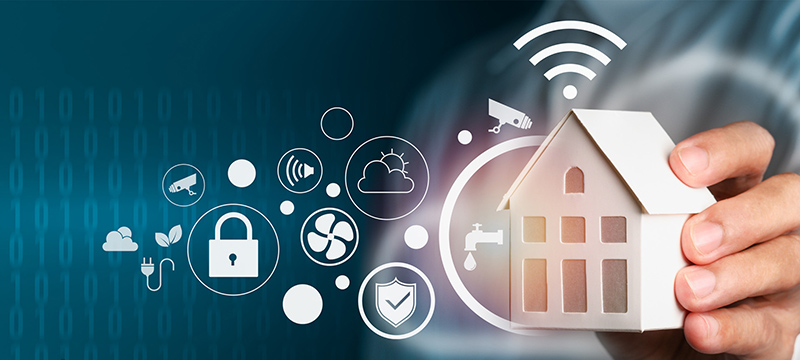The rise of smart home technology has transformed the way we approach everyday living. With an increasing number of devices being connected to the internet, our homes have become smarter and more intuitive than ever before. From voice-controlled assistants to security systems that can be monitored from anywhere in the world, emerging technologies are shaping the way we live in our homes.
Understanding Smart Homes
Smart homes are essentially regular homes that have been enhanced with internet-connected devices and systems. These devices can communicate with each other, as well as be controlled remotely through a smartphone or smart hub. This allows homeowners to automate tasks and control various aspects of their homes using technology.
Benefits of Smart Homes
One of the biggest benefits of smart homes is convenience. With devices that can be controlled through voice commands or set to schedules, homeowners can save time and effort on everyday tasks. For example, a smart lock for your home doors can be programmed to automatically lock at a certain time each day, eliminating the need to physically lock them.
Smart homes also offer improved energy efficiency. By being able to control lighting, heating, and cooling remotely, homeowners can reduce their energy consumption and save on utility bills. Additionally, smart home devices can provide data on energy usage, allowing for more informed decisions when it comes to conservation.
Core Technologies Behind Smart Homes
There are a few key technologies that are essential in making a home “smart.” These include:
Internet of Things (IoT)
The Internet of Things is the network of physical devices, vehicles, home appliances, and other items embedded with electronics, software, sensors, and connectivity which enables these objects to connect and exchange data.
Artificial Intelligence (AI)
Artificial intelligence refers to the ability of machines to mimic human intelligence. In smart homes, AI systems can learn your habits and preferences to improve automation and provide personalized recommendations.
Voice Assistants
Voice assistants, such as Amazon’s Alexa or Google Assistant, have become a staple in smart homes. These devices can be controlled through simple voice commands, making it easy for users to interact with their smart home devices.
The Future of Smart Homes
As technology continues to advance, the possibilities for smart homes are endless. Some emerging technologies that could shape the future of smart homes include:
Virtual and Augmented Reality (VR/AR)
With VR and AR technology, homeowners may be able to remotely control their smart home devices in a more immersive way. There are also possibilities for VR and AR to be used in home design and renovation.
5G Network
The introduction of 5G networks will allow for faster and more reliable connections, making it easier to control and communicate with smart home devices.
Robotics
Intelligent robots could potentially take over household tasks, making life even more convenient for homeowners. For example, a robot could be programmed to do the laundry or clean the house while you’re away.
Advanced Security Systems
As smart home technology becomes more sophisticated, security systems will also advance to provide better protection and monitoring of homes. Perhaps in the future, facial recognition technology could be used to identify and allow access to homes.
Conclusion
The emergence of smart home technology has greatly improved the way we live in our homes. With convenience, energy efficiency, and advanced technologies at our fingertips, it’s clear that smart homes are here to stay. As technology continues to evolve, we can expect even more exciting developments in the world of smart homes. So, it’s important to keep up-to-date with the latest trends and advancements to fully embrace the smart home revolution.
After all, who wouldn’t want a home that makes life easier and more efficient? The future of living is truly here, thanks to emerging technologies.

